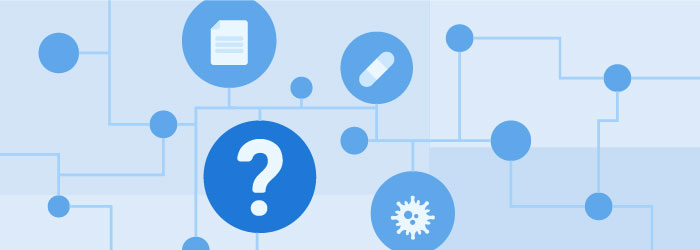Experience: A Great Teacher or a Source of Error?

Albert Einstein once said, “The only source of knowledge is experience.” When a genius talks, it is wise to listen. In the case of clinical reasoning, however, it might be prudent to modify the statement to say, “ONE source of knowledge is experience.” Adopting this philosophy may just help prevent medical overuse.
What is Effective Diagnosis and Treatment?
Critical in preventing medical overuse, effective diagnosis and treatment mean that we make the correct diagnosis, and choose and execute the best intervention.
Medical overuse is an umbrella term that encompasses overdiagnosis and overtreatment.1
- Overdiagnosis occurs when great resources are used to test for a minimally impactful pathology or when the tests will not likely change the diagnosis or alter the course of treatment.
- Overtreatment is defined as intervention with expensive, minimally effective, or unproven treatments.
When there is doubt about the best intervention or the importance of diagnosis, there is greater waste in testing and treatment.1 Take, for example, diagnosing a torn degenerative meniscus that has no effect on function in an elderly patient. It is an incidental and not abnormal finding. As for doubtful interventions, the risk of surgical debridement of the arthritic knee is not worth the benefit, which is no better than placebo.
What Does It Take?
Being an effective clinician and preventing medical overuse depends heavily on clinical expertise and clinical reasoning. Two divergent styles of clinical reasoning are hypothetical-deductive and heurism.
Expertise is generally based on biomedical knowledge, practical experience (context), and integration of theoretical and experiential knowledge to make decisions about diagnosis and treatment (clinical reasoning). 2
Hypothetical deductive reasoning is typical of new learners and generally involves systematic data collection in a pre-set pattern. This approach is very thorough but slow and prone to false positives (perceiving a piece of data as very important when, in fact, it is not).
Heuristic reasoning is typical of more experienced learners who listen to a patient history, develop a hypothesis based on pattern recognition, and use tests to modify the probability of that hypothesis. Bayes theorem captures this process when diagnosing: pre-test probability x likelihood ratio of a test = post-test probability. When treating, the process involves finding the priority concordant sign, treating that sign, and then deciding whether the treatment made the concordant sign better or worse. While the novice clinician uses mostly local treatments, the experienced clinician also uses regional and global interventions.
What Are the Pitfalls of Heurism?
All things being equal, heurism sounds like the better method, right? Generally this statement is true but heurism is full of bias, especially if you are making decisions based on outdated, incorrect assumptions.
For example, clinicians are likely to overestimate the occurrence of “popular” diagnoses. Witness femoroacetabular impingement (FAI) in the hip and its prevalence of diagnosis now compared to 15 years ago.
Also, we are all prone to gather data that confirms a hypothesis instead of data that supports a competing hypothesis. This tendency is called confirmation bias.3
How Do We Make the Right Decisions?
Reflective practice and life-long learning are the answers. Reflective practice allows us to contemplate patient interactions and examine our assumptions during the encounters. Life-long learning drives us to continue to challenge our assumptions and update our paradigms so that our pattern recognition is based on the most relevant and accurate data.
Experience is one source of knowledge but without reflective practice and continued learning, the experience you are likely to have is one of misdiagnosis and inefficient or ineffective treatment leading to medical overuse.
- Morgan DJ, Wright SM, and Sanket D. Update on Medical Overuse. JAMA Internal Medicine 2015. 175(1);120-124.
- Boshuizen, HPA and Schmidt HD. On the Role of Biomedical Knowledge in Clinical Reasoning by Experts, Intermediates, and Novices. Cognitive Science 1992. 16(2) 1992;153-184.
- Elstein AS. Heuristics and Biases: Selected Errors in Clinical Reasoning. Academic Medicine 1999. 74(7);791-794.

